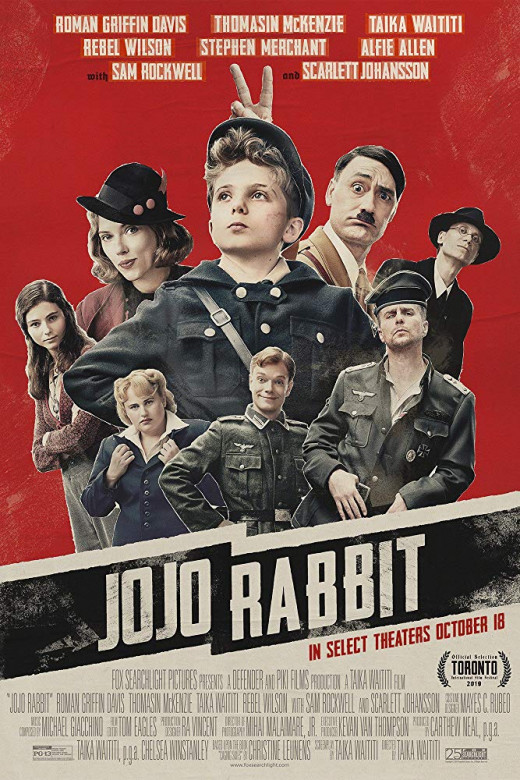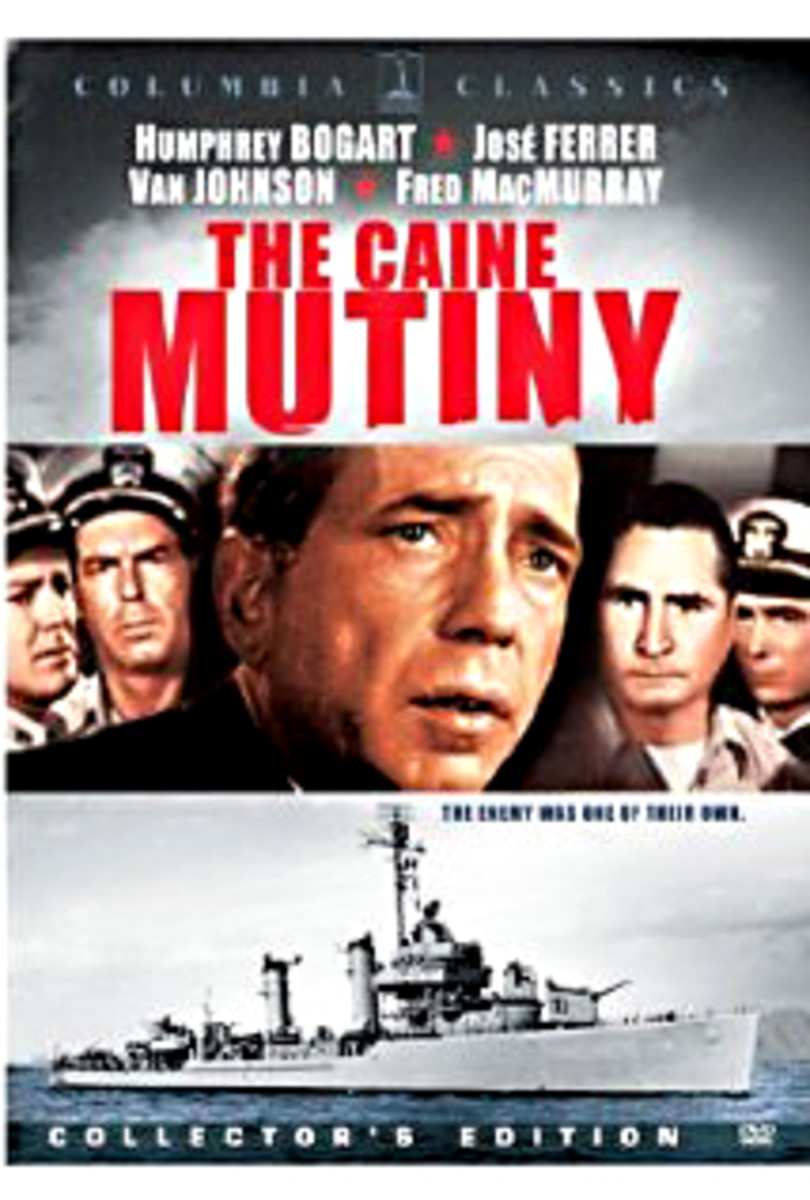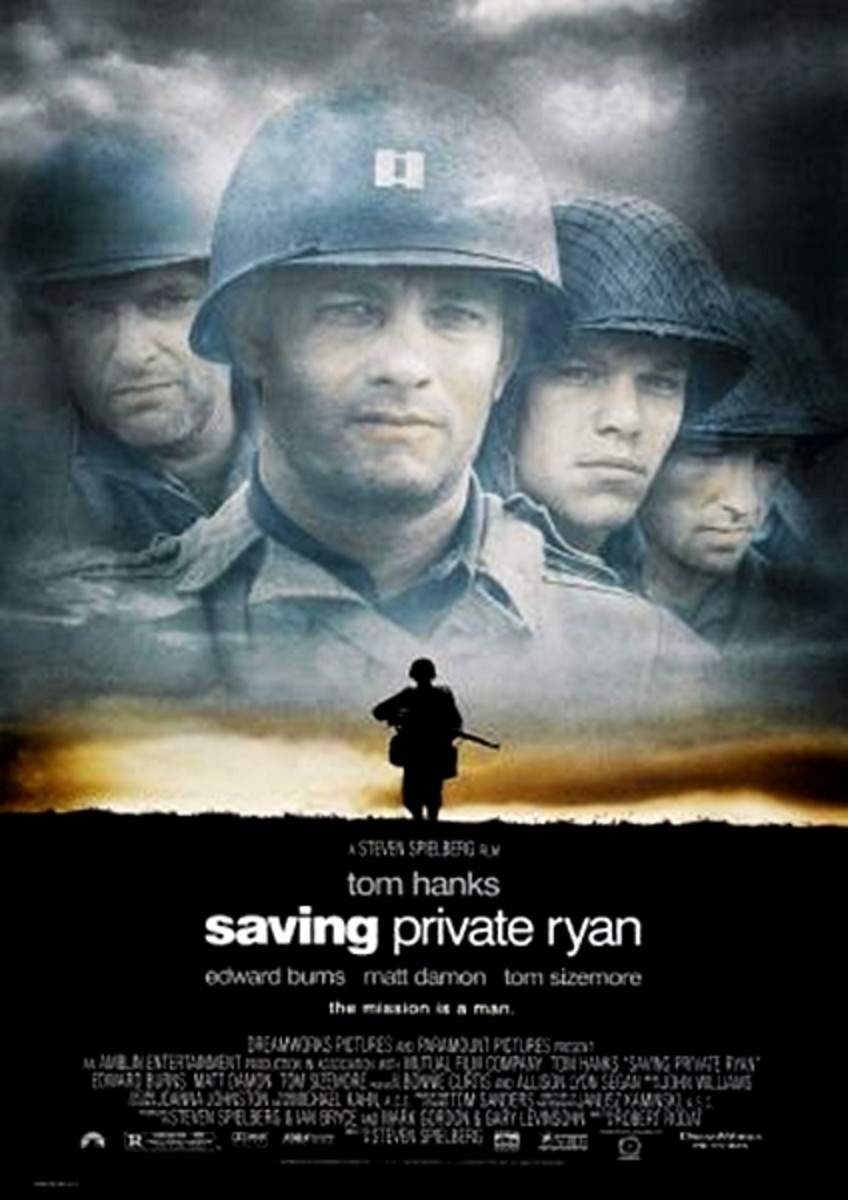War In The Betzler Residence: Jojo Rabbit

Synopsis
Johannes Betzler hopes to one day be a faithful Nazi. The 10-year-old, however, has a problem turning wishes into action in Jojo Rabbit. Johannes (Roman Griffin Davis) gets the nickname of Jojo Rabbit when he can't bring himself to kill a rabbit at a Hitler youth camp. He tries to make amends with camp leaders by showing the ability to toss a hand grenade, but that backfires when a bad bounce leaves Jojo wounded. His mother, Rosie (Scarlett Johansson) successfully appeals to camp director Captain Klenzendorf (Sam Rockwell) to allow her boy to be a part of the Nazi activities. The Captain has Jojo post propaganda in the neighborhood, as well as collect items that can be put to use for the soldiers. The boy even sees a supportive version of Der Fuhrer called Adolf (Taika Waititi), who encourages Jojo to keep doing his part for the war effort.
One day, he discovers that Rosie has given shelter to a Jewish teen named Elsa (Thomasin McKenzie). The boy later learns that his mother has given Elsa further cover by retaining the ID papers of his late sister, who was the same age. He threatens to let the Nazis know, but she reminds him that telling would certainly get his mother killed. Instead, she helps the boy create material that belittles her religion. Jojo also learns that Elsa has a boyfriend named Nathan. Jojo then pretends he has received a letter from the boyfriend, stating he's through with her. When he sees that has made Elsa cry, he writes a second letter that takes back the first one. The situation leaves Jojo upset with Rosie, but she tries to put a positive spin on it. She still does something that gets the attention of Gestapo agent Deertz (Stephen Merchant), who comes with several officials, including Klezendorf, to the Betzler home.
Evaluation
Waititi, who also wrote and directed Jojo Rabbit (based on the novel Caging Skies by Christine Leunens), gained international attention with his previous film, Thor: Ragnarok. In this follow-up, Waititi makes fun of the Third Reich, but he doesn't gloss over the atrocities. While Waititi does make fun of the indoctrination process, he also shows the Nazis don't tolerate the critics of the Third Reich, who are often summarily hanged in Jojo's town. The mix of comedy and drama works, but the film The Great Dictator (with Charlie Chaplin looking very much like Hitler), and the first film versions of To Be Or Not To Be (1942) and The Producers (1967) are far sharper and more humorous than Waititi's effort. I also had a couple of issues with the event timeline. The film is set in the final year of World War II, when it would seem that German citizens and troops alike would know that the war wasn't going in their favor. While Rosie has already taken risks by sheltering Elsa, she took the biggest risk at this time.
The youngest performers make the biggest impression here. Davis makes his film debut as Jojo, a boy who believes in the Nazi effort. Jojo quickly shows he's not ideal among his peers to be a good soldier, but he still wants to somehow contribute to the cause. A dilemma forces him to see Elsa as just as human as he. He still deftly walks the fine line between supporter and protector. McKenzie, at first, proves Jojo is no match for her. Then, she plays along with all of the dehumanizing stereotypes while growing fond of the boy. She uses her smarts to keep both her and Jojo alive. Rockwell, as Klenzendorf, shares a perspective with Jojo. Both are Nazis deemed less significant due to injury, but they support one another in ways that might surprise some viewers. Johansson maintains a secret agenda as Rosie while finding ways to protect both Jojo and Elsa. Rebel Wilson and Alfie Allen also have brief appearances as overly-enthusiastic Nazi officers.
Conclusion
Jojo Rabbit takes a look at World War II through the eyes of the younger people affected by the conflict. These youths have almost never known any other way to live and to believe, but one of them find the beliefs they have held come under fire. At a time where he is so impressionable, Jojo receives all sorts of messages about the way he should be. At a time where she should make the usual transition into adulthood, Elsa has been in hiding, knowing she has been targeted for death if caught. As war continues, Jojo and Elsa fight a fight that doesn't involve bullets. It simply involves a better understanding of the value of human life that Adolf would never comprehend.
On a scale of zero to four stars, I give Jojo Rabbit three stars. A Hitler youth's covert reeducation.
Jojo Rabbit trailer
© 2019 Pat Mills



